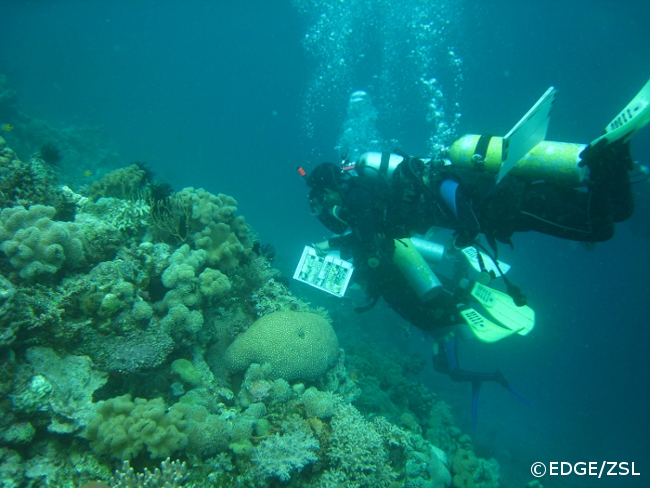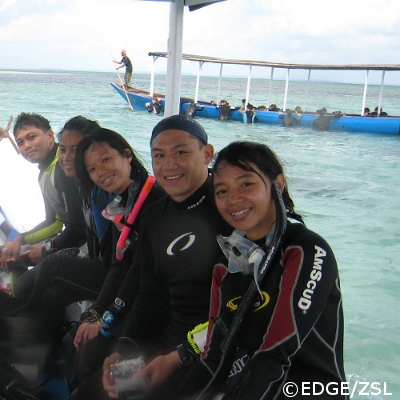Diving and learning marine biodiversity and conservation from the experts, in the centre of marine biodiversity is priceless. And I am grateful to get that chance from the EDGE Coral Reef Training Course. The training is being held in Hoga Island, Wakatobi, Indonesia. Wakatobi is one of Indonesia’s marine parks in the Coral Triangle, while Hoga island is Operation Wallacea’s marine research station. This research station provides a good atmosphere for the study of marine sciences. Lots of students come here to do their thesis or dissertation projects in marine research.


We also got a chance to visit Bajo community in Sampela, a community whose life depend on fishing. Poppy, a PhD student who studies the adaptation ability of the Bajo community after the coral reef destruction, guided us to see Bajos daily life. It was very interesting and we could see that Bajos people are very adaptable to environmental changes.
Actually this is the first time I visited Hoga island (the first time I visit Wakatobi as well), and I am amazed by the beauty and the diversity in Hogas water. The sensation of diving within its water is like stepping into a time machine. Sometimes you can find a huge coral or sponge showing that they have lived so long. This training has given me not only environmental & scientific education, but also has inspired me to actively take actions in coral reef conservation, especially because I live in Indonesia at the center of marine biodiversity.
The fist EDGE Corals Training Course is currently taking place at Operation Wallacea’s field site in Hoga, Indonesia. The course is lead by Catherine Head EDGE Coral Reefs Co-ordinator, Dave Smith from Essex University Coral Reef Unit, and Bert Hoeksema from Naturalis Center of Biodiversity, Netherlands. To find out more about the course visit EDGE Coral Reefs Training Course.